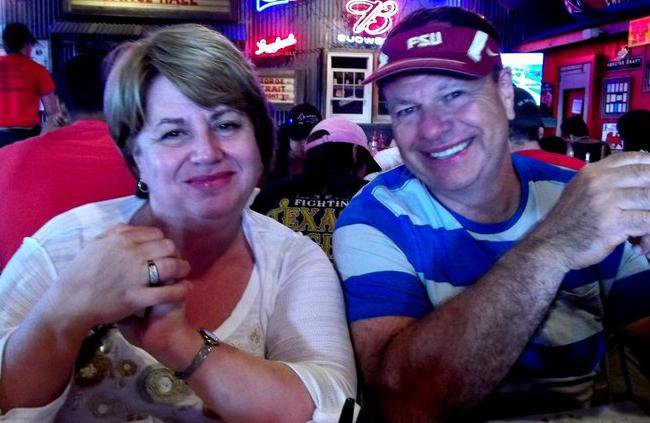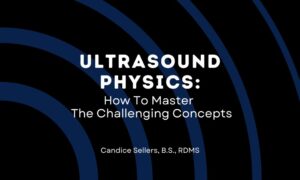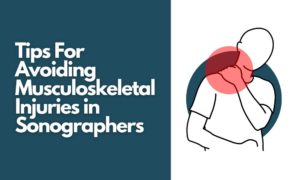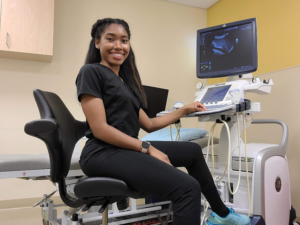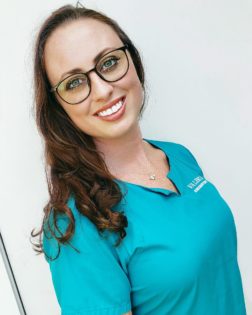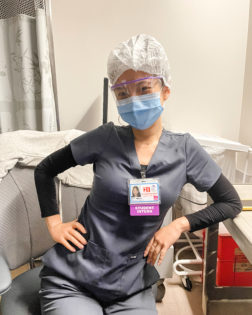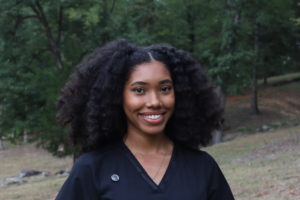“I love talking about ultrasound,” says Dave Felix, who has been a registered sonographer (RDMS) for more than 15 years. In 1995, Felix established SonoTemps Inc. with his wife Ellen (who brought her extensive experience in health information management to the company). The Florida- based staffing agency sends out its skilled and qualified traveling sonographers all over the country and Felix himself has performed ultrasound examinations in over 50 different hospitals. SonoTemps Inc. also provides other medical imaging services, like mammography and CAT scans, but Felix says ultrasound is what’s most in demand and makes up about 90% of his business. In this interview, Felix describes his love for the profession, what it’s like to work as a traveling sonographer and gives some advice for those thinking of entering the profession (which Felix considers to be one big family).
Q: What made you decide to pursue an ultrasound career?
DF: I was in my late 30s and was interested in a career change. My wife and friends worked in healthcare and it seemed like a logical direction to go. I checked out Ultrasound Diagnostic School (later named “Sanford Brown”) in Tampa, which had a one year program, and immediately enrolled.
Q: When did you start SonoTemps and what do you enjoy most about running this company?
DF: I didn’t plan on being an entrepreneur. I worked for a couple of temp agencies in the early 1990s and figured that a company devoted to sonographers would be a good idea, so I incorporated SonoTemps. I have a capable, hardworking staff that help me run SonoTemps. One of the best parts of business ownership is working with so many wonderful and talented sonographers.
Q: What is a traveling sonographer/ultrasound technician?
DF: It’s very similar to traveling nurses. If there is a scarcity and a need, then you have to get them from somewhere, so you go to a temp agency. Ultrasound is the same thing. Mostly our sonographers get called out to hospitals. There may be three ultrasound machines at a hospital, let’s say, and somebody goes on maternity leave. So they have to do something for that third machine, so they have to bring in a temp. The reasons for temp staffing could be that somebody just gave their two weeks notice, it could be maternity, medical leave, somebody takes a two-week vacation—it could be a lot of reasons. A traveling employee’s day is really no different than a permanent employee. In fact, after a period of time they become part of the family.
Q: What do you like best about this type of traveling position?
DF: Seeing the USA and getting paid for it. I still find traveling to new areas of the country exciting. Rural towns are quaint and friendly and scenic, and metropolitan areas have lots of stuff to do.
Q: What is most challenging?
DF: The pressure of a new assignment: Learning new computer systems, protocols, people’s names, etc. usually without a lot of orientation.
Q: What is most rewarding about being a sonographer?
DF: It is rewarding for me, and for any experienced sonographer, when we find pathology before anybody else. Not that we wish bad things upon people, but if we find a problem, we can advance the diagnosis a lot quicker and this person can get treatment. For instance, there have been a couple instances where I found ectopic pregnancies (the baby is not in the uterus where it belongs.) Well sometimes, time is very valuable and it can be lifesaving. That person’s vitals could be declining and they call a sonographer in the middle of the night and sure enough there is an embryo or fetus out in the adnexa (the pelvic area). So you feel good about that because you never know—you may have saved a life. As sonographers, we know what normal pathology looks like, so we’re scanning and hunting for anything that doesn’t look right and we look really hard and there’s a lot of technique to it. When your hand moves that transducer around and then your mind sees it and there’s a connection between your hand, the subtle movements…it takes time for that to develop. A lot of people develop it into an art form, which is really cool. Some people who are very smart never really get it and I don’t think they become that great a sonographer. But I see ultrasound as an art or it should be done as an art form.
Q: Do you have any advice for people considering an ultrasound career?
DF: There are so many routes to go. Ultrasound is a big world. Basically you’ve got your heart-vascular people and then you have people like me that are in general ultrasound, which means abdomen, OB/GYN and some vascular. So you tend to go one way or the other I notice. But then some people do all kinds of ultrasound…Do your homework, learn as much as you can and talk to working sonographers about this career. Most of all you’ve got to love what you’re doing.
Q: Is there anything you would like to add?
DF: The outlook for ultrasonographers looks strong as it is a relatively inexpensive and effective imaging modality. If I can be of service to anyone considering a career in ultrasound, please don’t hesitate to call me at 800-990-6224. www.sonotemps.com

